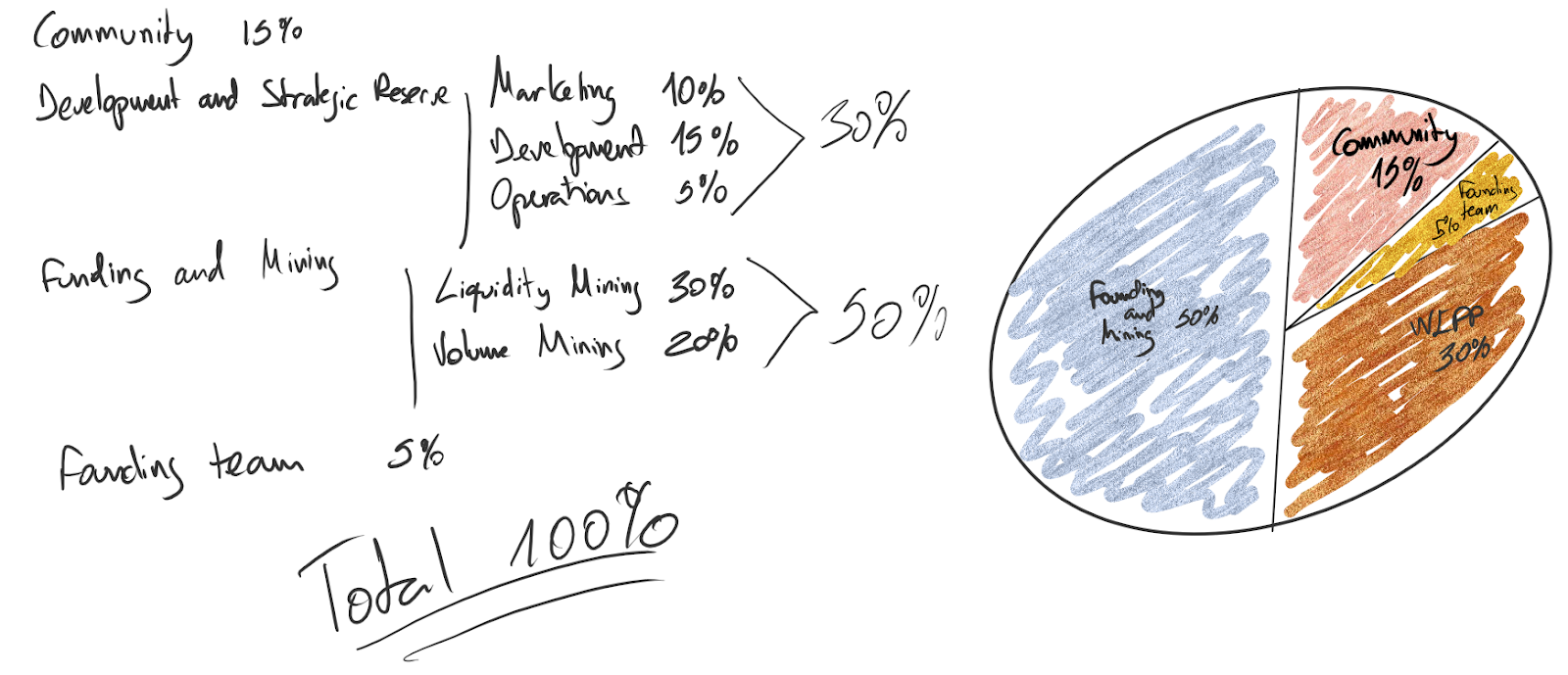PAGE Token Financial Strategy
The PAGE token is a revolutionary innovation which will allow a team of dedicated misfits to compete with pedigreed startups and, indeed, the major players in the publishing industry, without even needing to sell the concept to venture capitalists or angel investors as a starting point. This is possible because of the efforts of teams such as the Cosmos SDK project Regen Network, which have shown that alternatives exist in the fundraising space now that decentralized finance (DeFi) has reached global acceptance and the open source tools that make it possible have begun to proliferate financial markets.
As a direct result of these developments in blockchain and financial technologies, it is now possible to work long and hard enough to achieve financial goals without doing anything all that remarkable. The WIP Publishing Company has only sold about thirty NFTBooks to date, with gross sales totaling under $600, but the generosity and patience of WIPP authors combined with the power of the blockchain community into which WIPP was born to produce an environment in which a token launch could pave the road to funding, marketing, and technological needs being met without an ICO or a single meeting with a traditional venture capital firm.
The NFTBook Bazaar The token will be launched alongside the NFTBook Bazaar Beta release with little of the excessive fanfare one would expect from such an ambitious project, but we here at WIPP believe that this token represents an opportunity to compete on a global level on behalf of authors and readers everywhere to make publishing more rewarding and make books more available.
The NFTBook Bazaar will attach a 2% fee to all transactions (buy, sell, trade, etc) that take place on the site, but otherwise there will be no need for fees or other financial arrangements between WIPP or PAGEDAO and the users of the platform and blockchain network under construction.
Summary of PAGE Token Distribution#
The PAGE token will be distributed in four buckets, with the bulk of the distribution centered upon mining strategies designed to grow the network in a way that empowers the most able and willing community participants without disenfranchising anyone at launch. These buckets are as follows:
Decentralized Network Growth: 50% PAGE Network Development: 30% Community Support Incentives: 15% Founding Team Rewards: 5%

We believe that this distribution rewards the founding team that created the token adequately to incentivize further contributions to the project while simultaneously financing the development of the PAGE network as a decentralized public blockchain. The key elements of this strategy are to maximize decentralization on the basis of game theory; i.e., the distribution system is a game which has been designed to reward participants who support the network by developing technology, providing liquidity, transacting on the network during its early days, and working with other community members toward shared goals rather than competing with others in a perceived zero-sum game.
What has fundamentally changed about books, here, is that the transactional value of an asset is now a permanent aspect of an immutable decentralized network. The network does not yet have its own chain, but is envisioned as a fully scalable, application-specific Cosmos SDK Blockchain. By beginning with Ethereum, PAGE can start out where the most liquidity is and then pull transaction volume from Ethereum to its own native chain when sufficient development has been achieved on both the technology and marketing fronts. Hence, purchasing an NFTBook involves purchasing a part of the book-oriented network being created which can of course be sold later to any willing participant on the secondary market to recoup at least part of the purchase price, but the network will remember the author and can compensate royalties on secondary transactions as a result.
Rather than duplicating locked-down files whose purchase serves only to line the pockets of Amazon investors, the internet book of Web3.0 will always benefit the author when transactions are executed. These assets are also, of course, immutable and capable of being delivered in print, electronic, audio, video, video game, or even full-length feature film forms—so the difference between an eBook (limited text delivery capabilities, one-time transactional capability, and centralized server dependence) and an NFTBook will immediately become clear as market support for NFTBooks develops.